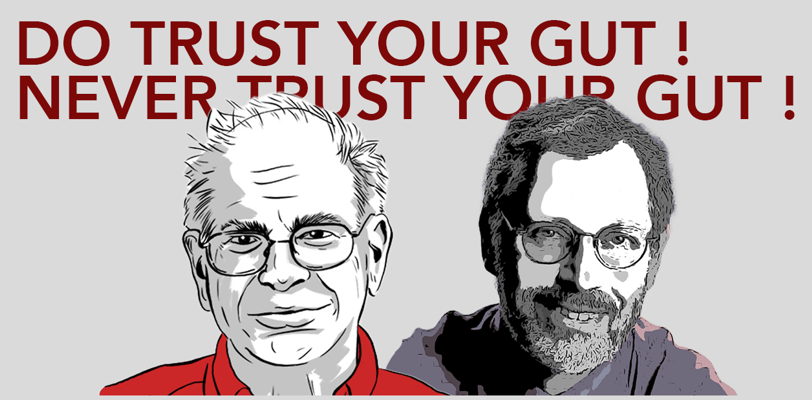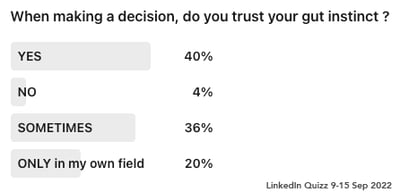When can we trust our intuition?
We often hear colleagues say that they trust their gut feeling...
ARTICLE


Do you trust your intuition?
It is challenging to acknowledge that our intuition can often lead us to erroneous judgments and poor decisions. We are blinded by an illusion of competence and excessive confidence—phenomena frequently observed in humans.
Instinct is so essential to the survival of every species that it is hard to imagine our remarkable human brain is not adapted for swiftly making professional decisions in the complex modern world around us. Indeed, we need to think carefully—but careful reflection is difficult, energy-intensive, and often requires a structured decision-making process.
Interestingly, half of the respondents state they occasionally rely on their instincts. They are right to be cautious, as situations in which intuitive decisions prove accurate are rare.
When can we trust professional intuition?
Two renowned experts, Gary Klein and Daniel Kahneman (Nobel Prize, 2002), have extensively debated this question. In their foundational paper titled "Conditions for intuitive expertise: a failure to disagree" (2009), they concluded that intuition is reliable only when three conditions are simultaneously met:
(1) A regular and predictable environment,
(2) Prolonged practice,
(3) Rapid and unequivocal feedback.
When you have accumulated roughly 10,000 hours of practice—give or take a few thousand depending on the quality of practice—intuition then corresponds to the unconscious recall mobilized during expert decision-making.
Having read about these findings, do you still believe your intuition applies to your professional decisions?


It is striking to note that only 4% of respondents to our LinkedIn survey followed this wise advice: never trust your intuition! Most of us rely on our instincts without genuinely verifying if the decision taken is correct.
